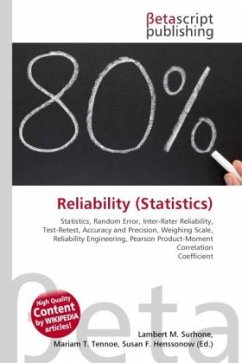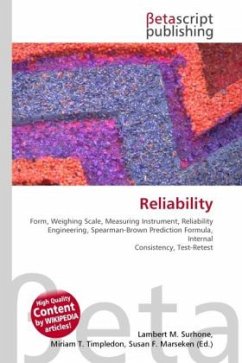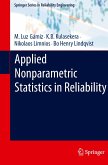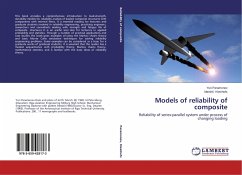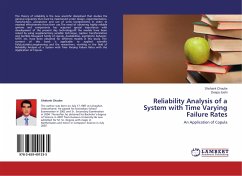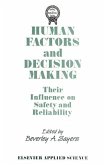High Quality Content by WIKIPEDIA articles! In statistics, reliability is the consistency of a set of measurements or measuring instrument, often used to describe a test. Reliability is inversely related to random error. There are several general classes of reliability estimates: Inter-rater reliability is the variation in measurements when taken by a different persons but with the same method or instruments. Inter-method reliability is the variation in measurements of the same target when taken by a different methods or instruments, but with the same person, or when inter-rater reliability can be ruled out. When dealing with forms, it may be termed parallel-forms reliability. Test-retest reliability is the variation in measurements taken by a single person or instrument on the same item and under the same conditions. Internal consistency reliability, assesses the consistency of results across items within a test.
Bitte wählen Sie Ihr Anliegen aus.
Rechnungen
Retourenschein anfordern
Bestellstatus
Storno

